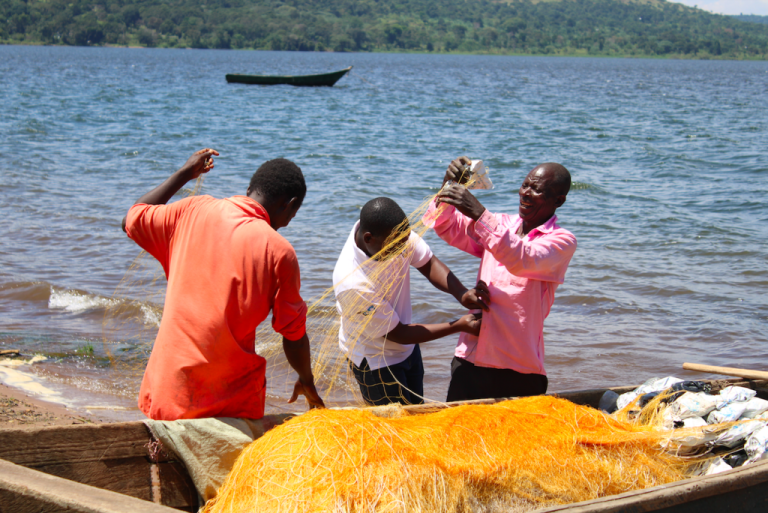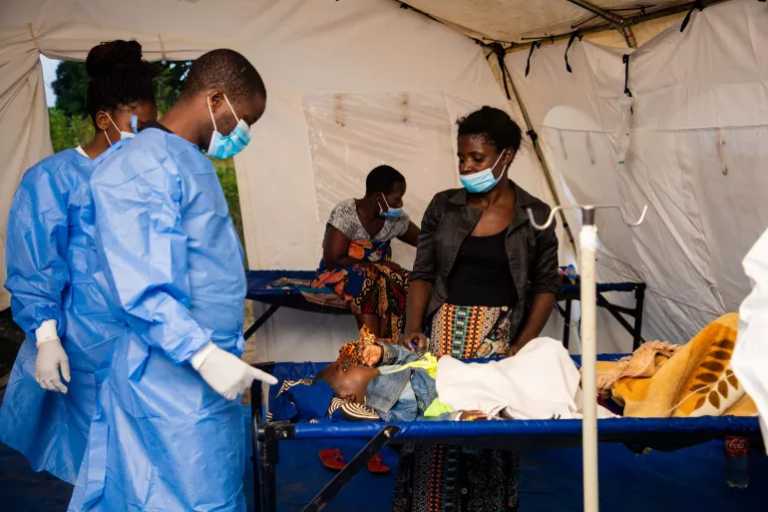COMMUNITY IMPACT
Cholera: A Socio-Economic Burden
Cholera, an acute diarrheal infection, caused by the bacterium Vibrio cholerae, highlights the intersection of microbial infection and the socio-economic burden it bears on mankind.
Although much is understood about the bacterium Vibrio cholera, global communities will always be impacted by the dire consequences of cholera infections and subsequent outbreaks.
Social Factors Contributing to Cholera Outbreaks
Outbreaks can be attributed to a variety of social factors like poor sanitation, unsafe water, and unhygienic conditions. Demonstrating that access to clean water and proper sanitation is of utmost importance if the occurrence of cholera outbreaks is to be successfully contained.
Therefore, cholera is often associated with marginalised communities. Such as, rural areas (due to government’s lack of investment in proper infrastructure communities utilises natural water sources often shared with livestock), low-income regions (including overcrowded squatter camps and refugee camps both associated with rapid expansion without regard to proper health and safety measurements) and conflict zones (where inequalities exist and exerts its effects on the aforementioned basic amenities).
Environmental Factors Affecting Cholera Outbreaks
Also to be considered as a driving force for social regress due to its contribution to cause a cholera outbreak is environmental disasters, such as floods and droughts. Floods generally contaminate available drinking water affecting marginalised communities the most and furthermore relying on government’s ability to swiftly respond to the situation.
Whilst, drought relies on communities to be soundly informed of practices pivotal to ensure that hygiene standards are adhered to at places where water are collected (e.g. boreholes, communal taps/tanks, etc.) and how to store it properly, in addition to ensuring that ablution facilities are properly managed.
Economic Burden of Cholera
Social and environmental factors associated with cholera are closely intertwined with economical factors. Whether a community is able to prevent or contain a cholera outbreak is directly proportional to resources allocated to address the causes of cholera and public awareness campaigns. Cholera economically challenges the healthcare system on its preparedness to cope with a cholera outbreak and the costs associated.
A study published in BMC International Health and Human Rights highlights the financial burden of cholera in the WHO African region. The estimated cost of treatment for mild to moderate cases ranges from $23 to $45 (R425.08–R831.68), while severe cases can cost between $100 and $120 (R1,848.18–R2,217.81). In poverty-stricken areas, these expenses are unaffordable for many, leading to delayed or inadequate medical care, which in turn worsens outbreaks. Cholera, not only requires economical input for prevention, but can be devastating to an economy relying on tourism and trade.

Case Study: The Impact of Cholera in Sub-Saharan Africa
Sub-Saharan Africa, particularly the Great Lakes Region, has faced a significant cholera burden over the past two decades. Uganda, a country in this region, has reported annual outbreaks and fatalities since 1998. The most affected communities are those living near lakes, where fishing and fish trading are primary sources of income. The fishing industry is vital to Uganda’s economy, ranking as the third-largest contributor to its Gross Domestic Product (GDP). Cholera outbreaks not only endanger lives but also disrupt economic activities, threatening the livelihoods of those dependent on fishing and trade.
Social Stigma and Community Engagement
As cholera outbreaks affect the community through various social factors another one of importance to highlight is stigma associated with individuals who contract cholera. The mentality of the community is often to isolate these individuals and their family members from the community which disrupts social cohesion. Thus, community engagement and social responsibility are required during outbreaks to support those affected, ultimately limiting the spread and ensuring that systems (like education, public access, economic activities, etc.) which gets disrupted are resumed.
Conclusion
The socio-economic impact of cholera extends beyond individual health, affecting communities, governments, and healthcare systems. These impacts include (and is not limited to) reduced productivity, healthcare costs, social disruption, mortality-related economic losses, and even declines in tourism.
Finally, cholera infections and outbreaks hinge on social-economic aspects regarding access to clean water, proper sanitation and public health awareness infrastructure and the ability to maintain functionality of these pivotal infrastructure.
REFERENCES
BMJ Open, 2021. Model-based estimation of the economic burden of cholera in Africa. [online] Available at: https://bmjopen.bmj.com/content/11/3/e044615 [Accessed 16 Mar. 2025].
BMC International Health and Human Rights, 2023. Economic burden of cholera in the WHO African region. [online] Available at: https://bmcinthealthhumrights.biomedcentral.com/articles/10.1186/1472-698X-9-8 [Accessed 16 Mar. 2025].
Rebaudet, S., Sudre, B., Faucher, B., & Piarroux, R. (2017). Cholera in coastal Africa: A systematic review of its heterogeneous environmental determinants. PLOS Neglected Tropical Diseases, 11(5), e0005407. https://doi.org/10.1371/journal.pntd.0005407
Banner Image Source: https://www.doctorswithoutborders.org/latest/2021-year-photos

